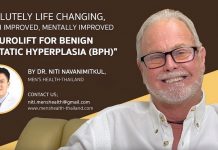A friend of mine emailed me this week to say that it was 10 years since he gave up smoking. Unfortunately for him he should have given up about 20 years before, as he is now confined to a wheelchair and needs continuous oxygen just to survive. He admitted that he still wants a cigarette and even dreams about smoking and the feeling of panic, in the dream, where he loses the cigarette packet.
I used to smoke 45 cigarettes a day. I gave up 33 years ago at 10 o’clock in the morning, not that I’m counting or anything! It was probably one of the most momentous decisions I have ever made, but definitely one of the best decisions I ever made about my health.
It was 1981 and I had started smoking as a medical student around 20 years previously. It was just the done thing at the time. We all smoked, it made us feel older and more mature. After all, our fathers all smoked, so it was almost a ‘badge’ of adulthood. A rite of passage, perhaps.
As the evidence began to mount up against cigarette smoking at the end of the 70’s and the early80’s, I found myself in the ridiculous position of advising patients to give up smoking, while I hid my ashtray in the bottom drawer of my desk, and waved my hand around a lot to clear the air before the next patient came in!
Like all smokers, I was able to rationalize my stand. I was advising patients whose lung function tests were down, but mine were perfect. If mine fell, then I certainly would give up smoking immediately. Yes, you are way in front of me, aren’t you! I had to test my lung function machine one day – and there was the proof – my respiratory function was 15 percent below the “average” for my age and height. It was ‘bite the bullet’ time! The biter was bit, hoist by my own petard and other aphorisms.
So I just gave up smoking. It was going to be easy, because I still considered myself to be a “social” smoker. I could give up when I felt like it. I expected that there would be a couple of ‘difficult’ days, but then the cravings would abate and I would be smoke free again. Two days was an understatement. For two weeks I would follow other smokers down the road, nostrils flared and twitching as I desperately tried to get a whiff of their second hand nicotine. I would look at ashtrays, wondering if I could take a quick lick before anyone would notice my bizarre behavior. Really, it was a very stressful time of my life.
But after two weeks, the cravings became less, I was able to have a beer without looking for a cigarette at the same time and I had schooled myself into saying, “Thanks, but I don’t smoke,” when offered a cigarette. But it was still very difficult.
In fact, it still is very difficult. I am sure that if I smoked a cigarette today I would be smoking 20 tomorrow and 45 the day after. But I don’t, because I made a conscious decision, based on medical knowledge, all those years ago!
Today, the medical evidence is not just suggestive, it is totally compelling. Cigarette smoking increases your chances of getting just about everything you don’t want, from crow’s feet to cataracts to cancers (all of them, not just lung cancer). So why do we still smoke, any rational member of society would ask? The simple answer is that we, as a society, have been manipulated by big business into taking an extremely addictive drug called nicotine.
Like all addicts we do not wish to admit to addiction, saying, “I can kick the habit any time I want. I just don’t want to right now.” It isn’t your ‘fault’ that you are continuing to smoke. It isn’t your fault that you have returned to smoking after some time of being a non-smoker. It is a drug of addiction and next week I’ll tell you how to stop – permanently!




